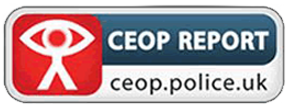Anti Bullying Policy
Our policy on bullying and how we prevent and respond to it.
Introduction
Within Scouting, we have an obligation to understand, address and resolve incidents of bullying, discrimination or harassment.
This policy outlines the process and steps taken within the 17th Newcastle Scout Group to address bullying, discrimination or harassment within our group. This policy is written in accordance with Scouts POR 2.7.2.2(f) as a published anti-bullying code, and applies to all members, young leaders, adult volunteers and trustees within the 17th Newcastle.
This policy has been written with reference to UK Scouting anti-bullying guidelines, and was last revised in January 2025.
Changes to this Policy
| Date | Change |
|---|---|
| September 2023 | Initial Policy Publication |
| January 2024 | Update to Scouts Safeguarding Policy has been reflected in this policy. |
| January 2025 | Transformation role name updates and protected characteristics added. |
1. What is Bullying?
1.1 Bullying is found in all walks of life, and can happen anywhere. Some say “it’s just part of growing up”, but many young people feel powerless to stop bullying and may carry its effects long into their adult lives.
1.2 Bullying can take many different forms, some less obvious than others.
1.3 We define bullying as deliberately hurtful behaviour that is usually repeated over a period of time.
1.4 Bullying is not the same as disputes and squabbles between friends – though this can turn into bullying, and should be addressed by Section volunteers. Bullying behaviour deliberately causes hurt, is repetitive and involves an imbalance of power.
1.5 Bullying can be in the forms of:
- 1.5.1 Physical – threatening or causing injury to a person or property;
- 1.5.2 Verbal – teasing, insults, ridiculing, name calling, humiliating or making sexist, racist or homophobic comments to a person;
- 1.5.3 Social – excluding others from a group, spreading gossip or rumours about them, rejecting or isolating them, or intentionally making them feel inferior/uncomfortable; or
- 1.5.4 Cyber – using digital media to purposefully harm someone, including through emails, texting, social media/networking and internet websites.
- 1.5.5 Discrimination – treating someone unfairly because of a protected characteristic
1.6 UK Scouting have provided a non-exhaustive list of signs a Member is being bullied, including when they:
- 1.6.1 Hesitating to come to meetings, or join in activities;
- 1.6.2 Asking to change groups or patrols;
- 1.6.3 Being the last person picked for a team for no obvious reason, or is picked on when a leader’s back is turned;
- 1.6.4 Is often the target of jokes;
- 1.6.5 Is reluctant to go to certain places or work with certain individuals;
- 1.6.6 Has bruising or some other injury (see policy Young People First - Yellow Card);
- 1.6.7 Is quiet and nervous, withdraws from everyone else and becomes quiet and shy (especially in the case of young people who are usually loud/noisy);
- 1.6.8 Refuses to talk about the problem; and/or
- 1.6.9 Is usually quiet, but becomes suddenly prone to lashing out at people, verbally and/or physically.
The aforementioned list is in no way exhaustive, and Volunteers should be vigilant for any signs of bullying.
2. Adult Responsibilities
2.1 It is the responsibility of all Volunteers to ensure that young people are living, learning, playing and Scouting in an environment where bullying behaviour does not take place.
2.2 All Volunteers within the 17th Newcastle are expected to familiarise themselves with this policy.
2.3 It is the responsibility of all Volunteers to report any suspected cases of bullying to their Section Leader or the Group Lead Volunteer as soon as is reasonably possible.
2.3.1 If the suspected case of bullying relates to the Section Leader or Group Lead Volunteer, the concern should be raised to the Group Lead Volunteer or District Commissioner (as appropriate).
2.3.2 The Section Leader or Group Lead Volunteer must make a written record of a suspected case of bullying, which is updated with any additional information and/or action(s) taken.
2.4 All Volunteers are role models, and Members often learn by example. Volunteers must not engage in any behaviour that could be encouraging or supporting bullying, even indirectly.
2.5 Volunteers involved in day to day Scouting should be observant for subtle signs of bullying.
3. Responding to Bullying
3.1 A Volunteer the Member trusts should establish full details, and agree on a way to address the issues. If the Volunteer is unaware of what actions to take, they should speak in consultation with another Volunteer, ideally with the Member’s involvement and consent.
3.2 A written record must be made of any disclosure of bullying, which must be reviewed within 3 months of the initial record.
3.3 The identity of an individual reporting bullying must not be shared with Members unless it is with the prior consent of the reporting individual. The reporting individual must not be pressured to consent to their name being disclosed.
3.4 The reporting individual must be followed up on within 3 months of the bullying incident being recorded.
3.5 We should always aim to work in partnership with parents. Parents should be made aware of the situation at the earliest opportunity.
4. Working with Bullies
4.1 If the case of bullying is within Scouting, we should work with the person accused of bullying to help them understand their behaviour, and its effects on others.
4.2 The overall goal of the conversation in 4.1 is to encourage positive behaviour and ensure the bullying stops. It is important to remember it is the behaviour which is unacceptable, and not the person.
4.3 When appropriate, the parents of a member accused of bullying should be informed. This conversation should initially occur without the member accused of bullying present to allow for a Volunteer and the parent/guardian to have a direct conversation without the involvement of either party involved.
4.4 This meeting should be recorded in the record made by 3.2
5. Serious or Persistent Bullying
5.1 If bullying involves a serious incident, such as a serious physical or sexual assault, this is classified as serious bullying.
5.2 Further, if bullying is present over a persistent period of time, and after previous intervention attempts has not desisted, this is considered persistent bullying.
5.3 In these occurrences, consideration should be made to involve The Scout Association's safeguarding team, the police and/or social services as appropriate. In any case where the police or social services are involved, The Scout Association's Safeguarding team must be informed at the earliest opportunity.


